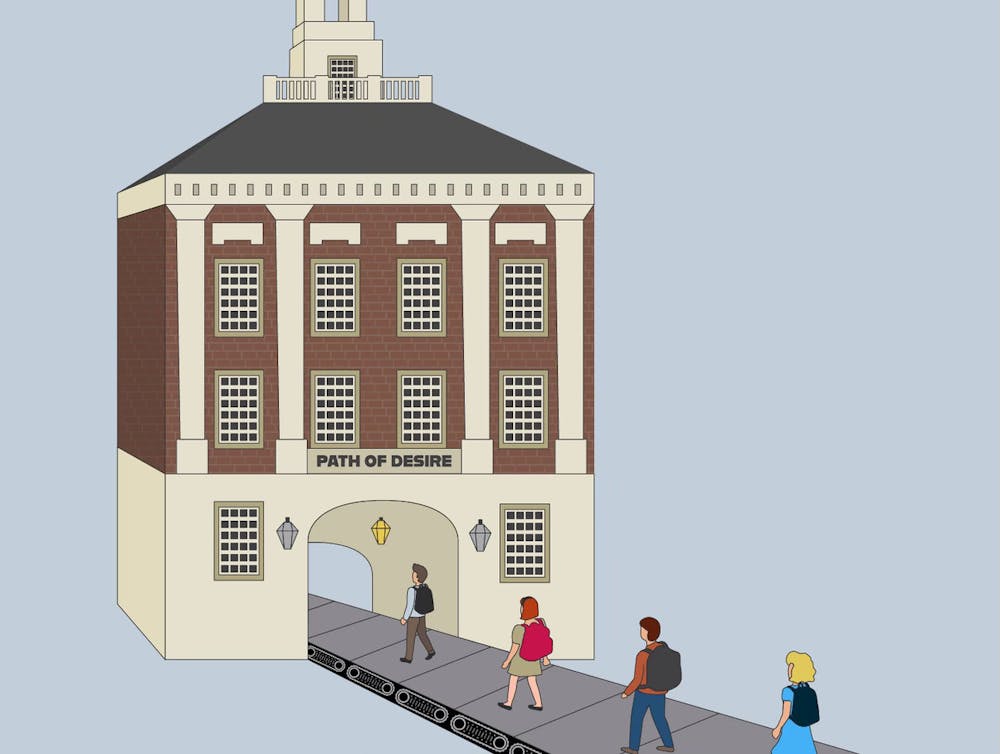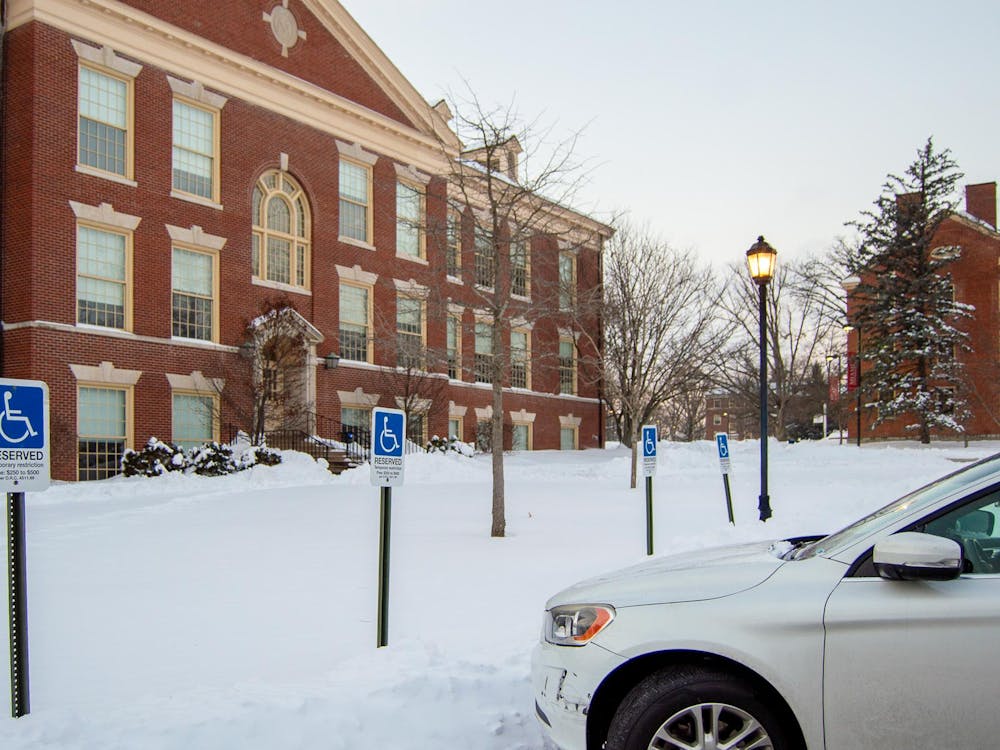Why take a 15 minute walk to class when it could be 10 minutes? Or 12 minutes? Or 14 minutes and 56 seconds? Take a desire path and those seconds will slip away.
Desire paths are those beaten dirt tracks that provide shortcuts between paved paths and defy all urban planning. Described by nature writer Robert Macfarlane as “free-will ways,” these walkways represent everyday civil disobedience by rejecting industrial control in the form of sidewalks.
Having many of these paths on campus, Miami University students are no strangers to ignoring the requests of Google Maps. Often, when taking these trails, those who use them note the efficiency in cutting inconvenient corners.
Paved by the feet of thousands, desire paths represent a united mind that works for the benefit of the individual rather than the Establishment – which for this article can be understood as forces that create intangible social power, be it anything from government to society as a whole. To some, taking desire paths might even be perceived as a way to stick it to “the man.”
However, you are not a trailblazer for taking desire paths. You are not staging a silent rebellion. Rather, these pathways, more strongly than sidewalks, represent the absence of freedom from industrial control.
The greatest product to come from the industrial revolution is not the automobile or the telephone; the greatest product is a culturally internalized worker mindset.
The Industrial Revolution transformed the American image of economic growth, and hard-working laborers are to thank. However, the increase in productivity and efficiency rests no longer as an achievement but persists as an expectation. With the introduction of the quest toward infinite growth, this mindset of efficiency has become an unconscious practice in American culture.
When we traverse desire paths for the sake of convenience, the mindset of efficiency overtakes our beings. When we walk desire paths without a critical eye upon our action, we have no more free will than the GrubHub robots.
I don’t mean to imply that using these trails strips their users of free will, but I would like to accentuate the connection between unconscious actions and the lack of free will.
If a student is running late to class, and they choose to take a desired path to save time, the conscious choice is what separates the student from the automatic efficiency mindset. However, if the student takes the desire path simply because it is there, the freedom of choice is thrown out by the almighty hand of the Establishment.
It is also necessary to note the repressive nature of the alternative. Standard sidewalks are more traditionally interpreted as a method for herding sheep because they are a clear representation of social control. However, by rebelling against this force, desire path users are met with the imminent control of the Establishment again, trapped in eternal subjection to society.
Whether you like it or not, we are surrounded by society – both functioning in and sustaining it. It is not necessarily a bad thing to adhere to the unwritten rules of society that the Establishment, that we, create, but we should question the actions that we are taking.
Enjoy what you're reading?
Signup for our newsletter
Free are the informed. But, it is up to the individual to seek information.
We are a part of Miami because we value learning through cognizant eyes.
As students of this university, it would be hypocritical to close our eyes the second we step out of the classroom and onto the desire paths.
So, maybe you are a rebel for taking these paths, but only if you choose to be. You might still be a sheep – because some things never change – but consciousness is a choice, and by choosing it, we resist.
It is in these habitual moments that we can deepen our understanding of ourselves. Mundane as desire paths may be, I have not heard a louder cry to practice critical consciousness of our place in the world.
Lilly McClelland is a first-year honors student majoring in diplomacy and global politics with an environmental science co-major and a French minor. She is a contributor to the opinion section of The Student.




